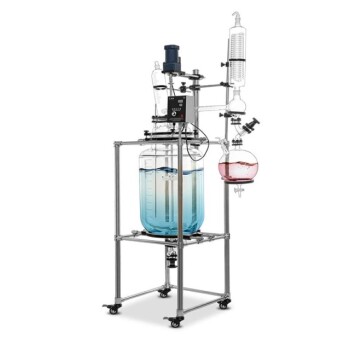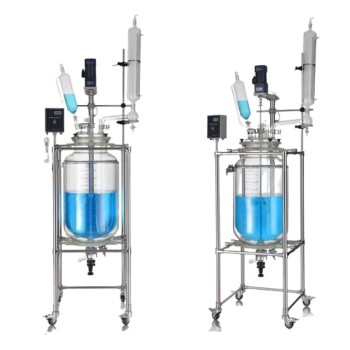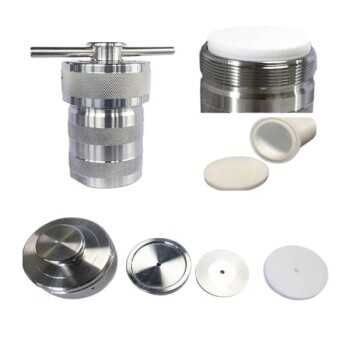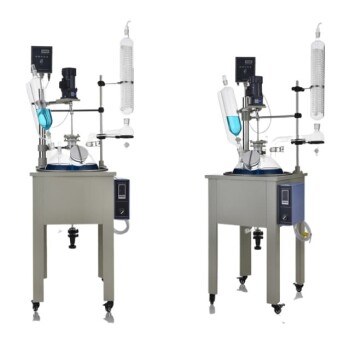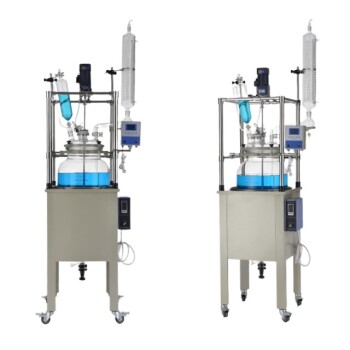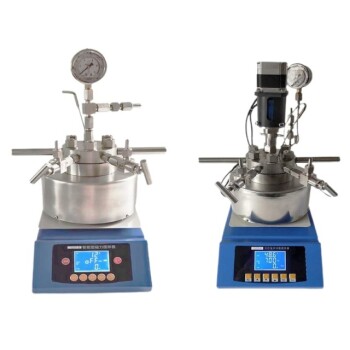Jacketed reactors are versatile equipment widely used in industries such as pharmaceuticals, chemicals, food production, and engine oil manufacturing. Their primary purpose is to provide precise temperature control during chemical reactions, ensuring optimal conditions for processes like distillation, crystallization, extraction, and synthesis. By circulating heating or cooling mediums (e.g., water or oil) through the reactor's jacket, these systems can regulate exothermic reactions, reduce the viscosity of liquids, and maintain consistent temperatures. This enhances product quality, improves energy efficiency, and supports research and production in fields like biofuel development, fine chemical synthesis, and environmental testing.
Key Points Explained:
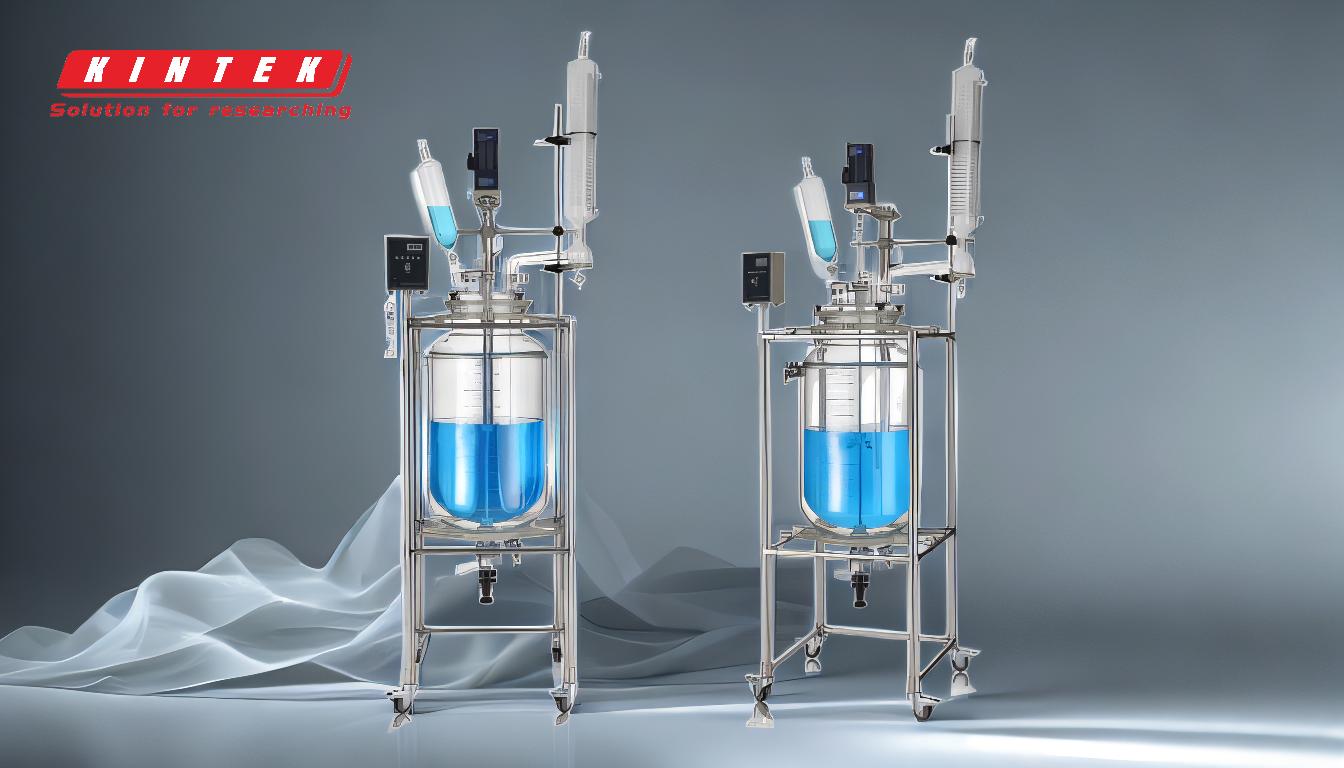
-
Primary Function: Temperature Control
- Jacketed reactors are designed to regulate the temperature of chemical reactions with precision.
- The jacket surrounding the reactor vessel is filled with a heating or cooling medium (e.g., water, oil, or steam) that is circulated to maintain the desired temperature.
- This is particularly useful for exothermic reactions, where heat generation needs to be controlled to prevent runaway reactions.
-
Applications in Various Industries
- Pharmaceuticals: Used in the synthesis of active pharmaceutical ingredients (APIs), crystallization, and post-processing to ensure high product quality.
- Chemical Processing: Employed for distillation, reflux reactions, and extraction, where precise temperature control is critical.
- Engine Oil Production: Helps reduce the viscosity of highly viscous liquids and ensures consistent product quality.
- Food Industry: Used for processes requiring controlled heating or cooling, such as fermentation or emulsification.
- Research and Development: Ideal for pilot plant setups, biofuel production, and electrochemistry experiments.
-
Advantages of Jacketed Reactors
- Improved Product Quality: Precise temperature control ensures consistent reaction conditions, leading to higher-quality end products.
- Energy Efficiency: The insulation provided by the jacket reduces heat loss or gain, minimizing energy consumption.
- Versatility: Suitable for a wide range of processes, from small-scale research to large-scale production.
- Safety: Helps manage exothermic reactions, reducing the risk of overheating or explosions.
-
Types of Jacketed Reactors
- Glass Jacketed Reactors: Commonly used in fine chemical plants and research labs due to their transparency, which allows for easy monitoring of reactions. They are ideal for processes requiring high purity and corrosion resistance.
- Stainless Steel Jacketed Reactors: Preferred in industrial settings for their durability and ability to handle high-pressure and high-temperature conditions.
-
Key Processes Enabled by Jacketed Reactors
- Distillation: Separation of components based on boiling points, requiring precise temperature control.
- Crystallization: Formation of solid crystals from a solution, often needing controlled cooling.
- Extraction: Isolation of desired compounds from mixtures, facilitated by temperature regulation.
- Synthesis: Creation of new materials or compounds, where maintaining specific reaction conditions is crucial.
-
Operational Mechanism
- The jacket surrounding the reactor vessel is connected to a heating or cooling system.
- A pump circulates the medium (e.g., water or oil) through the jacket, transferring heat to or from the reaction mixture.
- Temperature sensors and control systems ensure the desired conditions are maintained throughout the process.
-
Importance in Research and Development
- Jacketed reactors are essential for developing new materials, optimizing reaction conditions, and scaling up processes from lab to production.
- Their ability to provide precise control over reaction parameters makes them invaluable in fields like biofuel research and environmental testing.
In summary, jacketed reactors are indispensable tools in modern industrial and research settings, offering precise temperature control, versatility, and efficiency. Their applications span across pharmaceuticals, chemicals, food production, and more, making them a cornerstone of processes that demand high-quality outcomes and reliable performance.
Summary Table:
| Aspect | Details |
|---|---|
| Primary Function | Precise temperature control for chemical reactions |
| Applications | Pharmaceuticals, chemicals, food production, engine oil manufacturing |
| Advantages | Improved product quality, energy efficiency, versatility, safety |
| Types | Glass jacketed reactors, stainless steel jacketed reactors |
| Key Processes | Distillation, crystallization, extraction, synthesis |
| Operational Mechanism | Circulating heating/cooling medium through the reactor jacket |
| Importance in R&D | Essential for material development, process optimization, and scaling up |
Enhance your industrial processes with jacketed reactors—contact us today for expert guidance!

